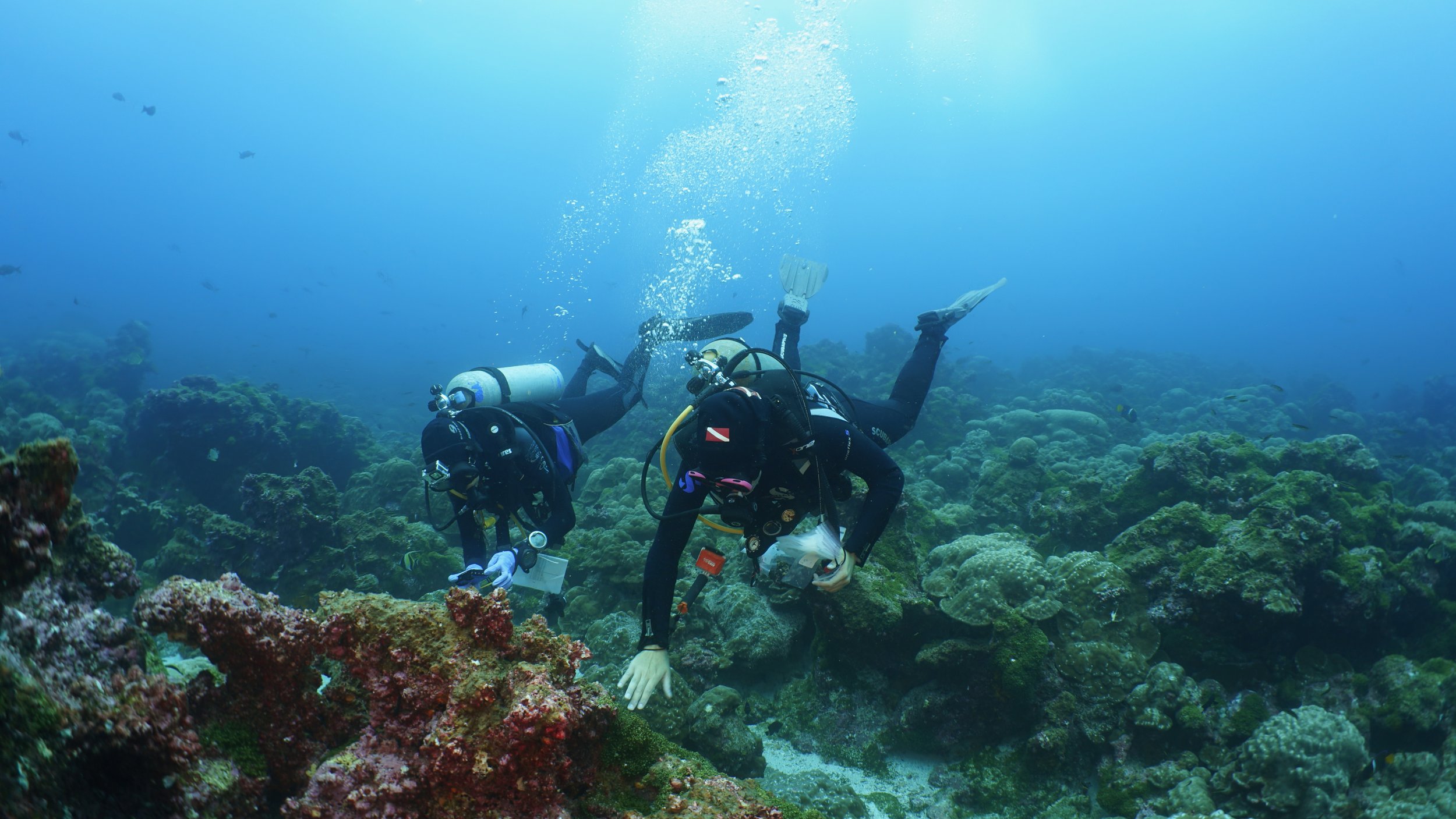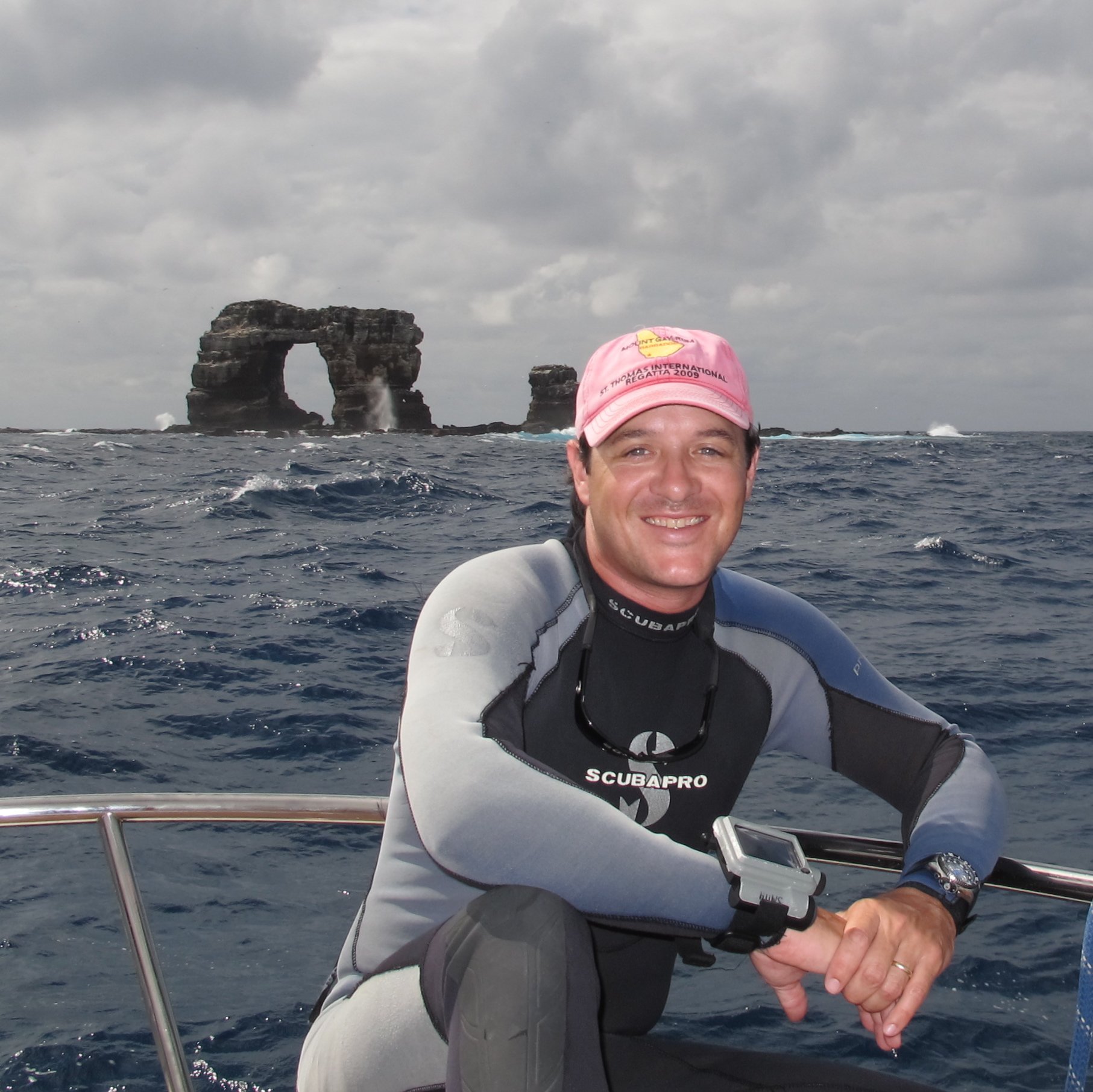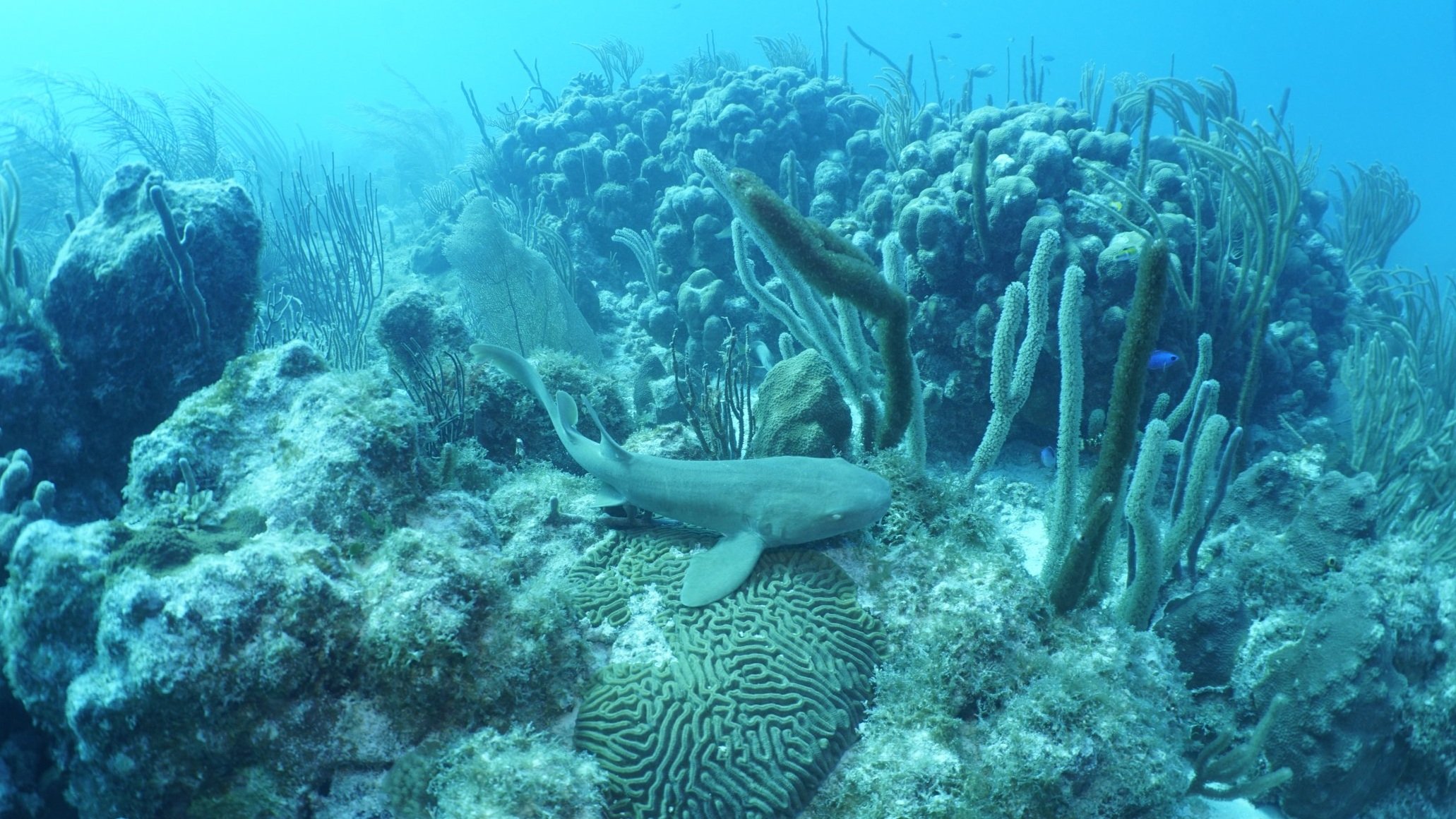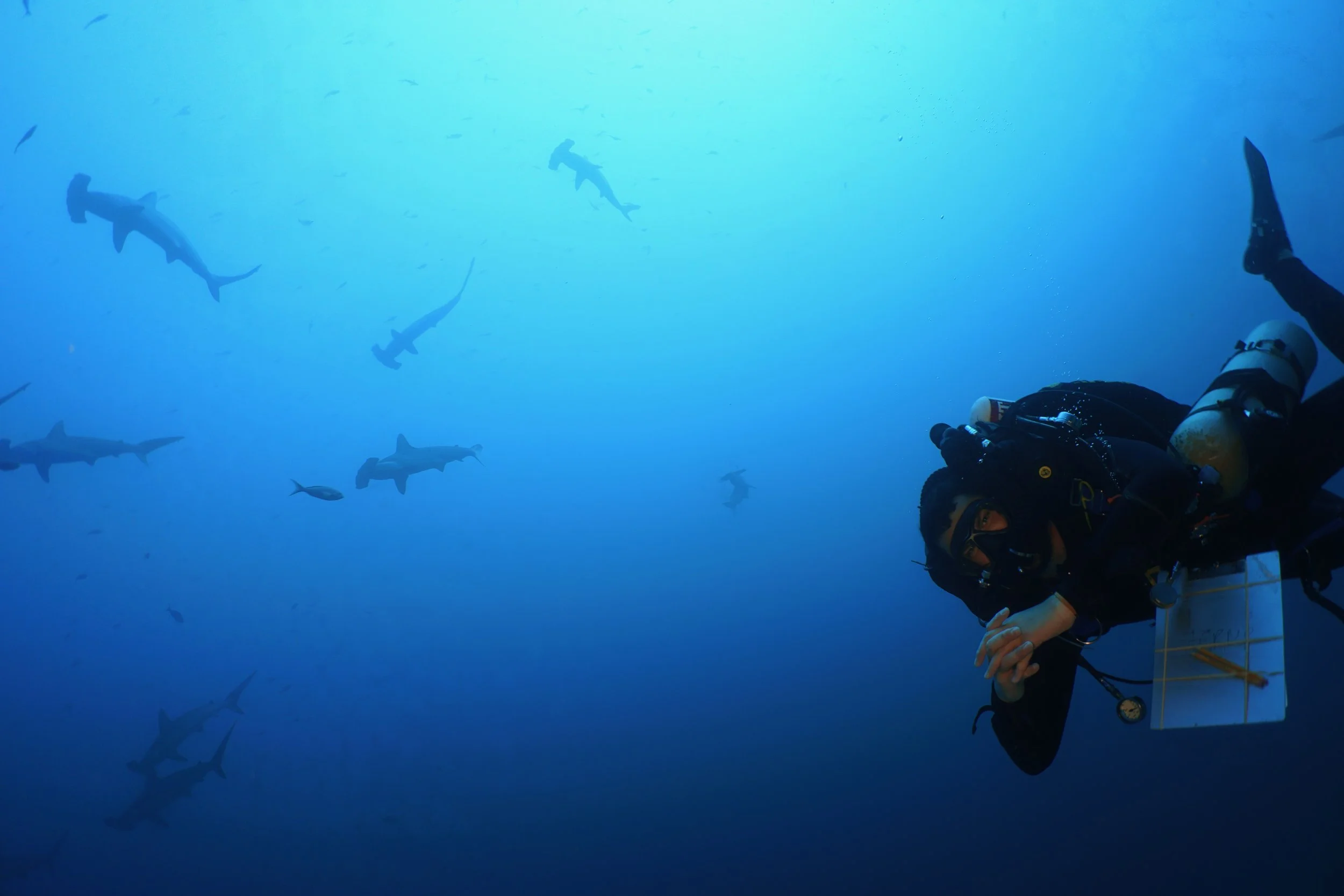
Wellington Reef,
Darwin Island, Galapagos
Photo: Viktor Brandtneris
WELCOME TO THE CORAL REEF RESILIENCE LABORATORY OF DR. TYLER B. SMITH AT THE UNIVERSITY OF THE VIRGIN ISLANDS
The coral reef resilience laboratory is an ecologically-focused research group that aims to understand the past, present, and future of coral reef ecosystems. We are based in St. Thomas a part of the beautiful U.S. Virgin Islands located at the northeast corner of the Caribbean sea. We have research that spans the globe.
OUR MISSION
The mission of the Coral Reef Resilience Laboratory is to use cutting-edge tools to understand the resilience of coral systems so that they can be effectively managed in a period of escalating environmental crises. Our research focuses on all aspects of coral reef ecology and how disturbances and stresses shape these biodiverse and incredibly valuable systems through time.
Section Styles full-width
KEY AREAS OF RESEARCH
The Coral Reef Resilience Lab focuses on important questions of ecosystem and human health that span the sunlit zones of the tropical ocean. Our Coral Futures theme is working to understand where coral reefs are going, what we can learn from the past to help us predict this trajectory, and what can be done to ensure the most vibrant outcomes for these ecosystems in a changing ocean. Our Mesophotic Coral Ecosystems theme is exploring, describing, and illuminating the drivers of deeper reef systems that form in the twilight depths below better understood shallow water coral reefs. Our Ciguatera Poisoning theme is synthesizing the ecological, physiological, and genetic causes of one of the most important marine-related human illnesses, of which the Virgin Islands is a known global hot-spot.
MESOPHOTIC CORAL ECOSYSTEMS
Coming Soon
CIGUATERA POISONING
Coming Soon
OUR TEAM
Staff and students affiliated with CORRL are highly skilled marine scientists working at the forefront of some of the most pressing questions in tropical marine ecology. Our group embraces diversity and inclusion, building a stronger and more comprehensive understanding of our natural world.
PROSPECTIVE STUDENTS
Dr. Smith has mentored dozens of students in pursuit of graduate degrees in the Masters of Marine and Environmental Science Program. Successful graduates have completed thesis projects on a diverse set of topics, including mesophotic coral reef growth and distribution, nuisance algae, reef ciguatoxicity, land-based pollution on reefs, and more! We are proud of our graduates who have gone on to careers in all levels of academia, conservation, and government research.
INTERESTED IN JOINING THE PROGRAM?
Please explore this site to learn more about what we do and visit the MMES website for program-specific information. And, drop us a line at tsmith@uvi.edu with any question you might have for Dr. Smith.
Section Styles full-width
YOUR DONATION
CAN MAKE ALL THE DIFFERENCE!
The Coral Reef Resilience Lab is a non-profit, academic research lab focused on building a better tomorrow for our coral reefs. Your donations are critical in helping us fulfill this mission. Donations go to supporting research and people and are 100% focused on completing our science objectives. Thank you!
Corals are cool! Dan Mele prepares to dive in and capture stunning and informative reef photos.
Deep reef research with some scalloped hammerhead friends at Wolf Is., Galapagos (photo: Tyler Smith)
Sharing is caring. Sarah and Rossie collect algae for ciguatera poisoning research at South Capella, St. Thomas.













